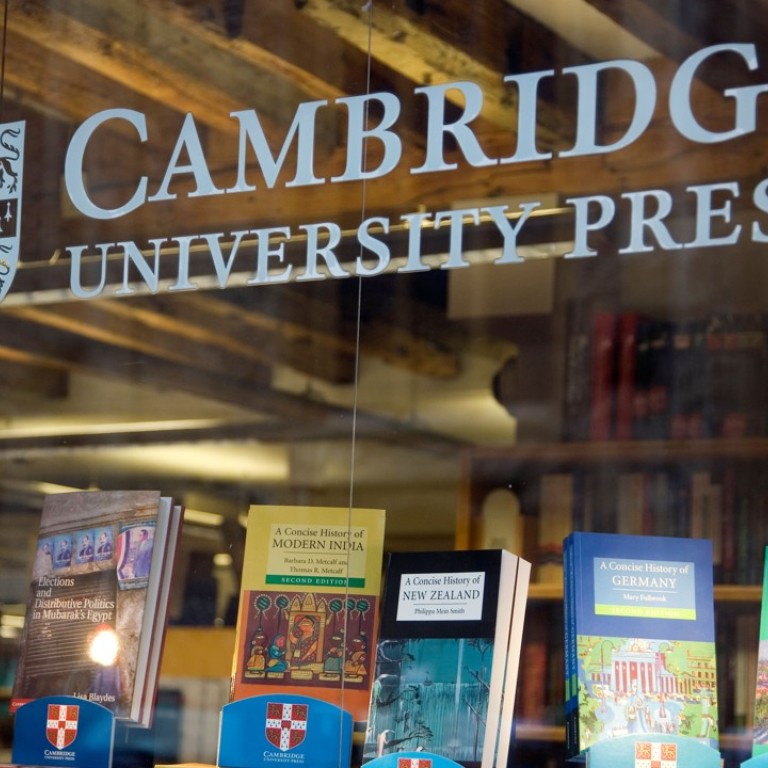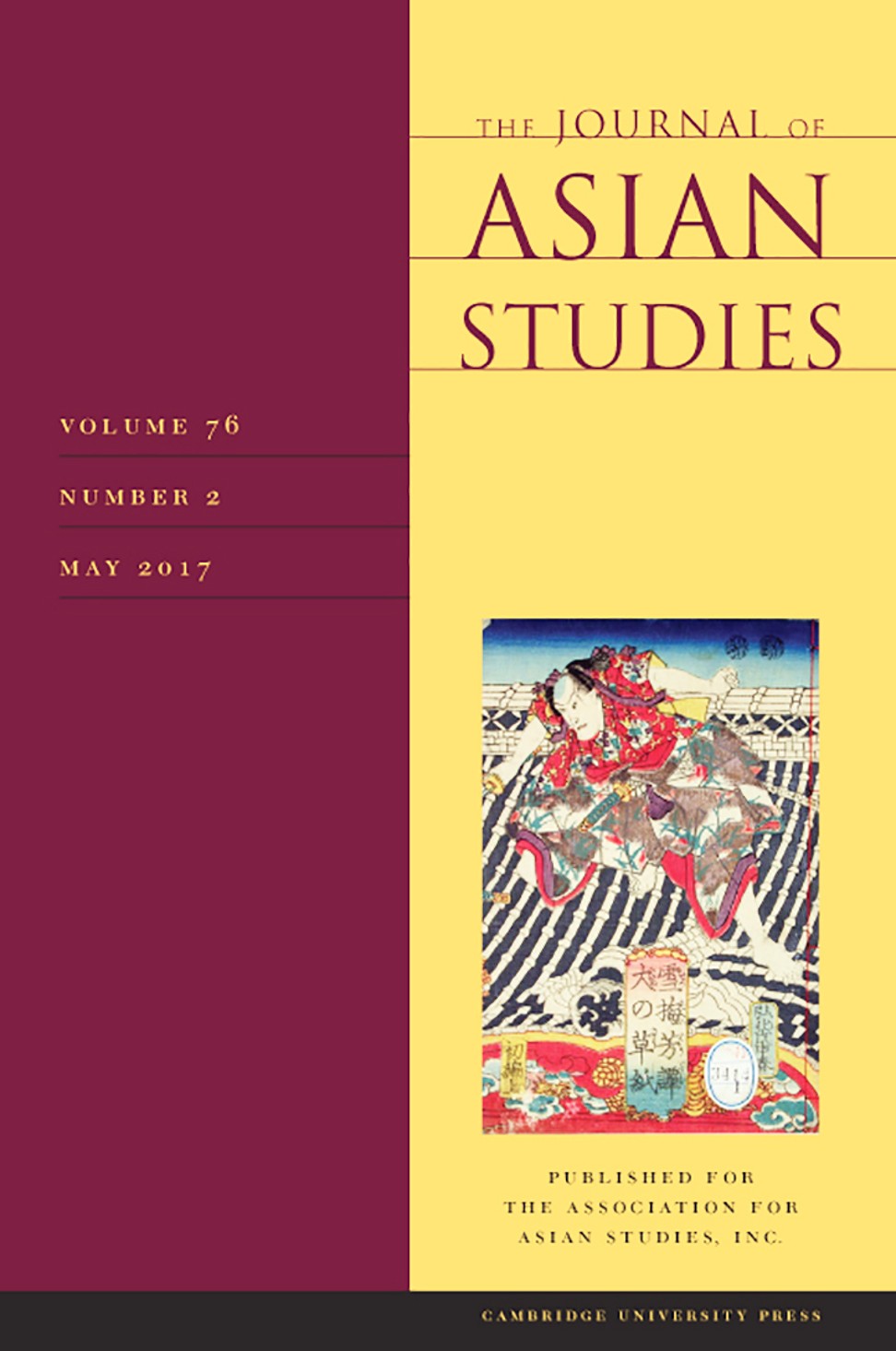
Second academic journal published by Cambridge University Press says China tried to block articles
Journal of Asian Studies was asked to remove about 100 articles from website hosted on Chinese mainland, its compilers say
Another academic journal published by Cambridge University Press said Chinese authorities requested the removal of articles they deemed sensitive from its mainland website.
The statement from the compilers of the Journal of Asian Studies came after its Britain-based publisher announced it had reversed its decision to block access on the mainland to more than 300 articles in another of its titles, The China Quarterly.
The Journal of Asian Studies said authorities asked its publisher remove about 100 articles from its website in mainland China. The request was refused.
Cambridge University Press publishes the Journal of Asian Studies for the Association for Asian Studies, which is based in Ann Arbor, Michigan.

The statement from the Association for Asian Studies said: “The officers of the association are extremely concerned about this violation of academic freedom and the AAS is in ongoing discussions with CUP about how it will respond to the Chinese government.
“We oppose censorship in any form and continue to promote a free exchange of academic research among scholars around the world.”
Cambridge University Press said last week it had complied with Beijing’s demands by taking down 315 articles from its China site.
Most of the censored articles touched on the 1989 Tiananmen crackdown, the Cultural Revolution, Tibet, Xinjiang, Hong Kong or Taiwan. The publisher restored the articles to the website on Monday.
The press office of China’s State Administration of Press Publication, Radio, Film and Television was unavailable for comment on Tuesday.
A copy of CUP’s statement translated into Chinese was published on Cambridge University’s official Weibo page soon after midnight on Monday. Although it had been deleted by Tuesday morning it still managed to spark a reaction.
“Cambridge University has demonstrated the spirit that holds up a renowned world-class university,” one of the most popular comments read.
Jonathan Sullivan, a specialist in China studies at the University of Nottingham in England and a member of The China Quarterly’s executive committee, said that the huge volume of research material being produced around the world had made it difficult for Beijing to control the sharing of information.
“There has not been a systematic response from China, other than rather ad hoc censorship,” he said. “[But] The tightening of all sectors, including academia, suggests that one may be coming.”
In a notice issued on Tuesday, the Ministry of Education said the country should try to attract more overseas scholars to China, but that those who fail to meet “ideo-political requirements” would be ousted.
Meanwhile, Reuters reported on Tuesday that LexisNexis, a US-based company that provides legal, regulatory and business research, on Tuesday named the two products it removed from the Chinese market in March after being asked to do so.
“Earlier this year LexisNexis Business Insight Solutions in China was asked to remove some content from its database,” it said.
“In March 2017, the company withdrew two products (Nexis and LexisNexis Academic) from the Chinese market.”

